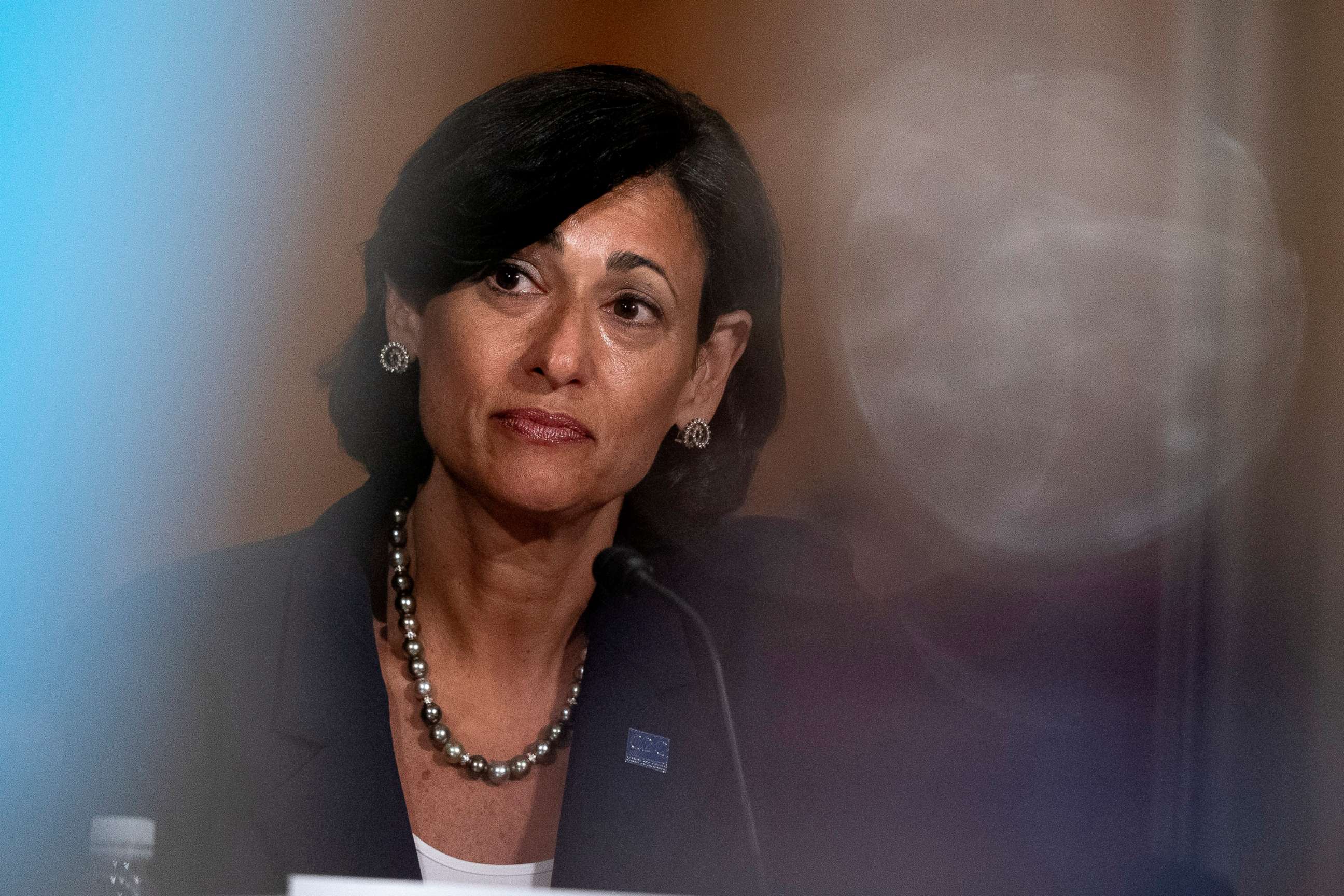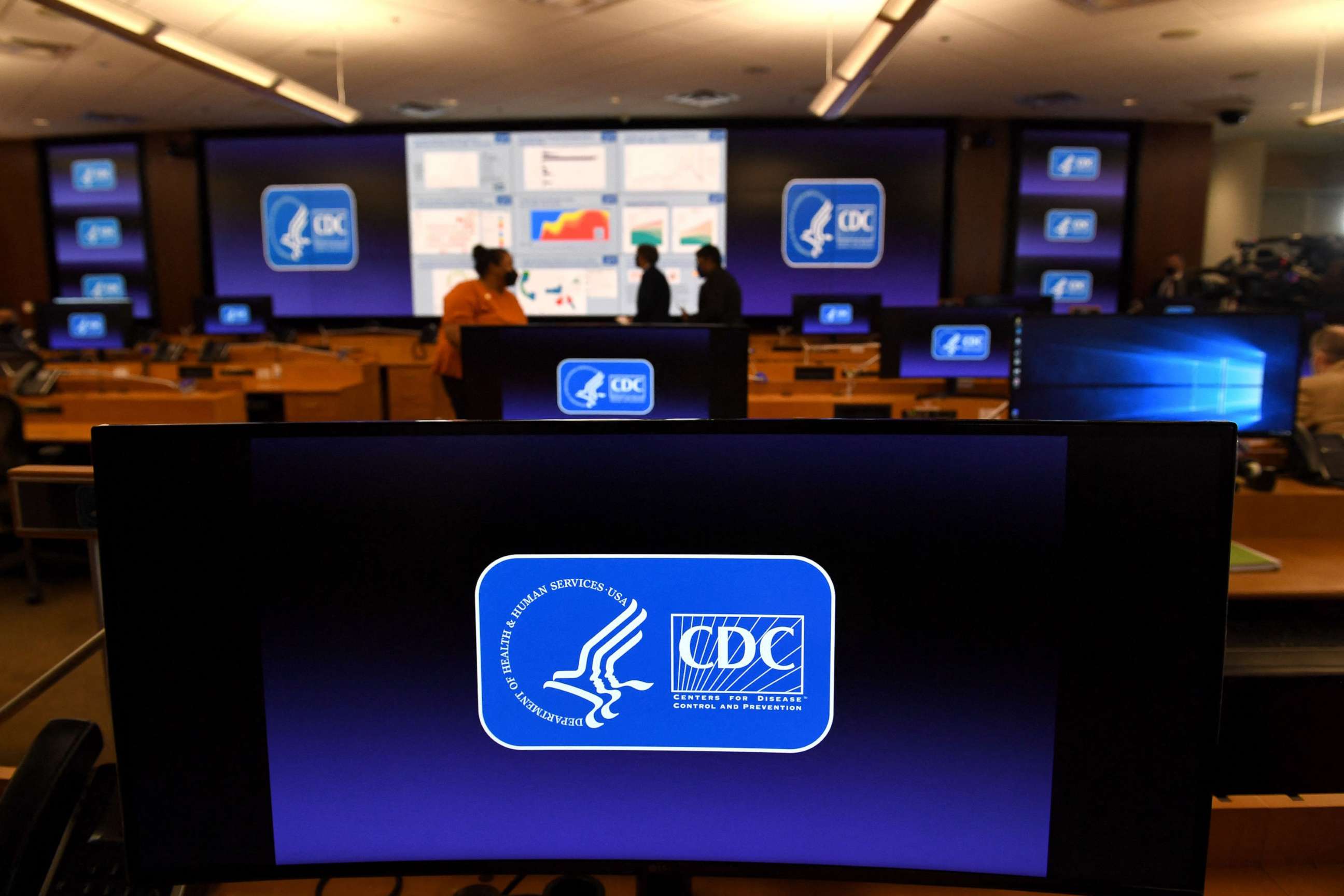CDC director acknowledges mistakes to staff in internal message
"This is our watershed moment," Walensky told CDC employees.
Centers for Disease Control and Prevention Director Rochelle Walensky made a remarkable acknowledgment of her agency's failures during the COVID-19 pandemic as she delivered a message to her staff Wednesday.
Her message, given in an internal video viewed by ABC News, addressed employees about the plan to overhaul the agency, following an internally initiated review which found that the CDC's handling of the COVID-19 pandemic fell short of the crisis.
"To be frank, we are responsible for some pretty dramatic, pretty public mistakes. From testing, to data, to communications," Walensky said to the camera in front of a blue CDC backdrop.

"As an agency, even with all the terrific work we do, we still suffer the consequences from these mistakes. After over 18 months serving in this position, learning and living the many lessons from our COVID-19 response, and receiving feedback from many internal and external interested parties, this is the right time to take a step back and strategically position CDC to facilitate and support the future of public health," Walensky said.
Those conversations, she added, yielded "loud and clear" key principles to "promote public health action and communication; conduct and disseminate exceptional science," and "serve our partners, prioritizing the American people first."
"All of us collectively are being asked to look to the future and build a stronger CDC to tackle what lies ahead. This is our watershed moment," Walensky said.
"We must pivot, take appropriate action, and lead the systemic changes required to equitably protect health, safety and security of all Americans," she said -- especially because neither the pandemic nor her agency's response to it, is finished.
Walensky's message, delivered in a more than 14-minute recording, follows a scathing internally initiated review of how the CDC handled COVID-19, which found its approach toward the pandemic failed to meet the moment of crisis and offered a series of changes intended to revamp the agency and make it more nimble.
That review, ordered by Walensky in April, comes after the CDC had come under frequent fire for its muddled and inconsistent messaging on COVID mitigation measures.

During interviews with roughly 120 agency staff and key external stakeholders, the review found that it "takes too long for CDC to publish its data and science for decision making," that its guidance is "confusing and overwhelming" and that agency staff turnover during the COVID response "created gaps and other challenges for partners," according to findings obtained by ABC News.
"The COVID-19 pandemic and our agency-wide response is not over. Our important work continues," Walensky said in her video. "There have been too many tragic deaths from this virus and we must do all we can to prevent more."
The threat of other infectious diseases' spread means now is the time for public health infrastructures to shore up their defenses, she noted.
"Now the global monkeypox outbreak requires increased attention and efforts," Walensky said. "We will continue to activate the personnel and resources necessary to fulfill our public health mission."
In the video, Walensky promised to "develop new systems and processes to equitably deliver all of CDC science and program activities to the American people," with "data modernization, laboratory capacity, rapid response to disease outbreaks, and preparedness within the US and around the world."
"These changes will inform what CDC can do during a pandemic, along with every day during normal operations in our infectious and non-infectious disease portfolios to ensure a CDC science reaches the public in a timely and implementable manner," she said.
"We must also strengthen the agency's ability to respond to public health threats," she said. "This is an agency-wide top priority to respond when we are called upon."
Walensky emphasized the importance of "breaking down organizational silos in favor of a 'One CDC mindset,'" increasing accountability and supporting equity efforts across the agency, she said.
"Change is hard. I know that. This is our time to change. And we will all need to roll up our sleeves to move CDC forward," Walensky said, and "apply" the "COVID-19 lessons learned" by "sharing scientific findings and data faster."
"The future of CDC is dependent upon applying the lessons learned from the last few years, whether it's under my direction or a future CDC director, regardless of who is sitting in the seat, an honest and unbiased read of our recent history will yield the same conclusion. It is time for CDC to change," she said.
"I recognize that our growth will involve some uncomfortable moments for many of us. We will hold ourselves accountable and we will be open to feedback," Walensky said. "I owe it to you to work hard with the agency's leadership to make CDC better and I'm grateful to have you in this with me."
ABC News' Cheyenne Haslett and Eric M. Strauss contributed to this report.




